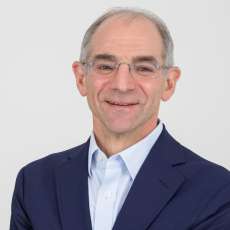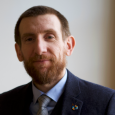We are meeting you at an exciting point in the company's history, following a series of acquisitions that also led to a rebranding. Will you walk us through these changes and Allucent's role in the market presently?
The starting point was in 2019, with the acquisition of CATO Research, a small company with very deep regulatory consulting expertise. From here, through a series of acquisitions, we started expanding our expertise into oncology, which attracts over 40% of the investments in the life science industry; bio-statistics, which greatly impacts study designs and regulatory negotiations for our clients; clinical pharmacology modeling & simulations, which has an increasingly important role in making drug development more efficient. With the most recent acquisition of Pharm-Olam, a mid-sized CRO with a strong global presence, we reached critical mass in terms of capabilities, global footprint, and expertise, so it made sense to launch forward into the market with a new resounding brand name.
Does your growth strategy foresee more acquisitions?
With the current plethora of services and expertise we are providing, there is no pressing need for us to pursue any new acquisition. Of course, we will continue to look at opportunities for expanding our capabilities or geographical footprint, but we can afford to be selective.
Why did you decide to focus your work on small and mid-sized biotechs?
Because they are responsible for as much as 75% to 80% of the new developments in our industry. They often work at the cutting edge of science and the regulatory framework - the programs they're working on are sometimes so new that new regulatory pathways need to be explored. So, the support they need is deep expertise and insights, as well as available resources. A large pharmaceutical company will have a large staff of regulatory experts and bio-statisticians, but a smaller company has to pick and choose what expertise they can afford. Our mission is to be that partner that provides expertise like larger CROs while maintaining an intimate relationship and high level of attention.
Your expertise covers several therapeutic areas; which tend to see most interest from your customers?
We tend to mirror the investment trends in the industry. At the top of the list is oncology, closely followed by cell and gene therapies, which are very new therapies that call for deep expertise. We are able to provide strong regulatory and clinical guidance to companies in these fields. Rare disease is another therapeutic area that has been in focus, as well as CNS (Central Nervous System), that has recently started showing renewed promise and interest.
Are there projects you are working on that are particularly exciting, in terms of their potential to truly impact the life science landscape?
Even though scientific medical innovation lies in the hands of our sponsors, as a CRO, we are constantly striving for innovation in clinical trial execution or ways to maximize efficiency. Therefore, a particular interest is in decentralized trials, which means using technology to bring trials to the patients, in the same way telehealth is being used in healthcare. Our DCT offering, Patient Direct Trials (PDT), is focused on the unique needs of the small and mid-size clients that centers around a patient-centric approach to clinical trials. Recruiting patients is the biggest challenge for trials and using a decentralized system will make them more accessible to eligible patients. This also helps to diversify the participant pool so that trial results are more representative of the real-world effectiveness and safety of new treatments.
Model-Informed Drug Development (MIDD) is another game-changer for clinical development. In order to better conduct research, computers examine data that can be obtained from a variety of sources. These modeling techniques can accurately predict how two medications will interact for instance, or how a drug will be metabolized in a patient with limited organ functions. In the past we may have been obligated to run a trial for each of these scenarios in order to compile a comprehensive set of data. Increasingly, regulators are allowing these types of models to be used as support. This makes it possible to develop drugs more efficiently and helps design better trials by more precisely calculating dosage, routes of administration, and frequency of administration before the study even begins.
What makes it so difficult to recruit patients for medical trials?
Firstly, there are trials for rare and unusual diseases, so just finding the needed patients is a challenge. Secondly, patients sometimes feel uneasy because they do not understand the risks and benefits, or how well-managed and safe the process actually is. And, of course, the inconvenience, which is why finding ways to lower the burden on the patient with decentralized trials is very important.
You already have a noticeable international footprint, are you looking to expand more?

You do not develop a drug for a country, you do it for the world.
So, it is important to think and execute globally. We currently cover approximately 60 countries with offices in 25. We continue to evaluate other geographical areas for expansion as the market needs change. There are a few questions we need to ask ourselves for this: is it a country where the regulators require that you run the trial in their country in order for the drug to be on the market there? Is it a country with a population that has a concentration of the indication you are studying or potentially populations with racial or ethnic differences that impact the disease and its treatment? Is it a good area to draw talent (i.e., potential employees) from? It is a complex decision but definitely one worth exploring.
Do you have a final message for our readers?
We are thrilled to be in the position we are in, having built our work around true purpose -- supporting the unique drug development needs of small and mid-sized biotechs seeking to bring innovative treatments to patients awaiting breakthroughs -- and a set of capabilities and expertise that is unique for a company of our size.





